‘This is how we camp’ is a part of the series “This is how… by TwistingSpokes.com”. Camping while on a journey like ours has become a way of life, a ritual. When we camp we relax and make ourselves as comfortable as possible. Usually when we say camp we are wild camping or, called by some, stealth camping.
Some background knowledge on the terms: wild and stealth camping. This is a widely used concept and mainly it is called stealth camping due to regulations in some countries where it is actually illegal to camp without permission. This is of course a political decision which we mainly find a bit difficult to comply with and therefore we hide our selves when camping. Wild camping is a more free version and goes with camping in the wild and this is the version we enjoy. Wild camping is a great definition and the way it should be and in reality it is the way it goes in most countries we have passed a long the way.
Our ritual of camping and finding the spot to camp has developed as our journey has developed along the way. In the very beginning we where a bit reluctant to wild camp as we were not always sure on our instincts of the area we had found. We still did wild camp but spent quite some time searching for places and asked people to stay on their land. Now we have a process we adapt when choosing the spot. We never wild camp in or in the proximity of a city anywhere! Except this one time where we had planned to camp 40km from Istanbul, this proved to be a bad bad decision and we realized this too late. So we found a spot near a harbor which seemed quiet when we got there. Soon cars arrived and it proved to be a spot to go and drink for young and older men. To make it even worse the harbor was having a break when we set up the tent and soon they started shifting containers and repairing a truck-lift. Not recommended, nothing happened we just slept bad… Very bad…
Usually we first separate the area in categories and make decisions depending, not that strict more to outline the idea. It really sounds sometimes like we are control freaks but we mainly do this on instinct :
- Populated area town or village in sight
- Ask for permission
- To camp near a house or in the garden of the house
- Communal area where we can camp
- Rural area with villages or farms
- Set tent and expect somebody to come around
- Confirm with person, this has always worked out (In most cases they will come back with something for us)
- In some cases we just hide very well so nobody can find us.
- Wild area no or very little people
- Just camp and enjoy!!!
- Paid camping available
- Asking people and they will mainly direct you to the camp site
- Pay and enjoy a shower and maybe a kitchen:)
If we have found a potential spot one of us walks out to the spot to research if it is indeed okay. Criteria for camping are: reasonably flat, out if sight, dry, and no sharp things or stones underneath the tent. We had a big no-no in Iran when after we had set-up the tent Martin went in and had a thorn straight in his knee. The whole tent was set on thorns so we needed to take the whole tent down to clear the area and set it up again…. When the spot is found and we are good with the area we sit for 5 or 15min drink some water or what we have and get a feeling of the spot. If all is good we start with pitching the tent. Sometimes even one of us does the tent and the other starts cooking (Martin cooks 8 out of 10 times this makes Susanne the Tent Master).
In winter we would set up the tent together and then start cooking in the tent or near the tent. The warmth of the stove really is a dream when it is -20 or below. Winter makes camping a bit more intense as the body is reacting to the cold. You are wearing gloves and more clothes makes it sometimes a bit frustrating. But nothing beats the crisp winter air!
When we have cooked and eaten we relax a bit and talk about the day, maybe write some notes on the day. Sometimes when the days are longer we might even read a book, haven’t done that very often but we’ve also had a long winter. Then we start preparing to sleep, blowing up our mattress, unpacking our sleeping bag and clothes. Changing clothes for sleeping is vital when wild camping for several nights with limited hygiene. As the body gets a chance to relax in the less dirty clothes. ‘This is how we keep clean’ will be covered along in the series
We do set an alarm, we always try to sleep at least 8 hours for a good restitution for the legs and mind. We can do with less just not to often as we then really can feel the body complaining and needs the rest even more. We usually sleep early because of the light and wake up early too.
- What does our camping equipment consist of:
- Tent Msr HubbaHubba HP with ground sheet
- Sleeping mats Thermarest Neoair All Season
- Pillows Exped inflatable (We really enjoy having a pillow)
- 3 Seasons sleeping bag Sawatch Katabatic gear
- Summer sleeping bag Cumulus 150
- Liner Silk liner
- Stove Primus Omnifuel (A real work horse!)
- Pots Optimus set of pots
- Plates Swedish camping plates set
- Spork and Knife Sea to summit
This is an outline if you want more details, then post a comment and we will follow up on it.
How many nights have we camped is not sure, somewhere around 250+ nights for sure. We have to work on our statistics :0
When we break camp we do our best to remove all signs of us being there in the sense of food waste and human waste. This is very very important for us to stress this, as we are really happy that it is still possible to find wild camping spots. China is another story read our blogs for more info. Breaking up our camp (as well as setting it up) takes time. Usually it takes an hour and a half from waking up to actually setting off. In winter it could be up to two and a half hours because everything is just cold and slow.
Camping is one of the things we really enjoy on the road, the freedom to find good and bad spots to camp. The setting sun, the moon and the stars. Wild camping can be very rewarding when the weather is perfect the sun is going down and you are sitting and eating your meal it is a great feeling a natural or primal feeling. For us wild camping and bicycle touring has very strong interrelations and could at this moment not do one with out the other.
We have now wild camped all the way to South Korea through more than 16 countries and never felt unsafe. It’s true we never felt unsafe wild camping which is pretty amazing when we think of the image media are creating back home.
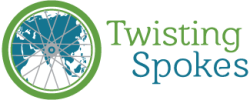
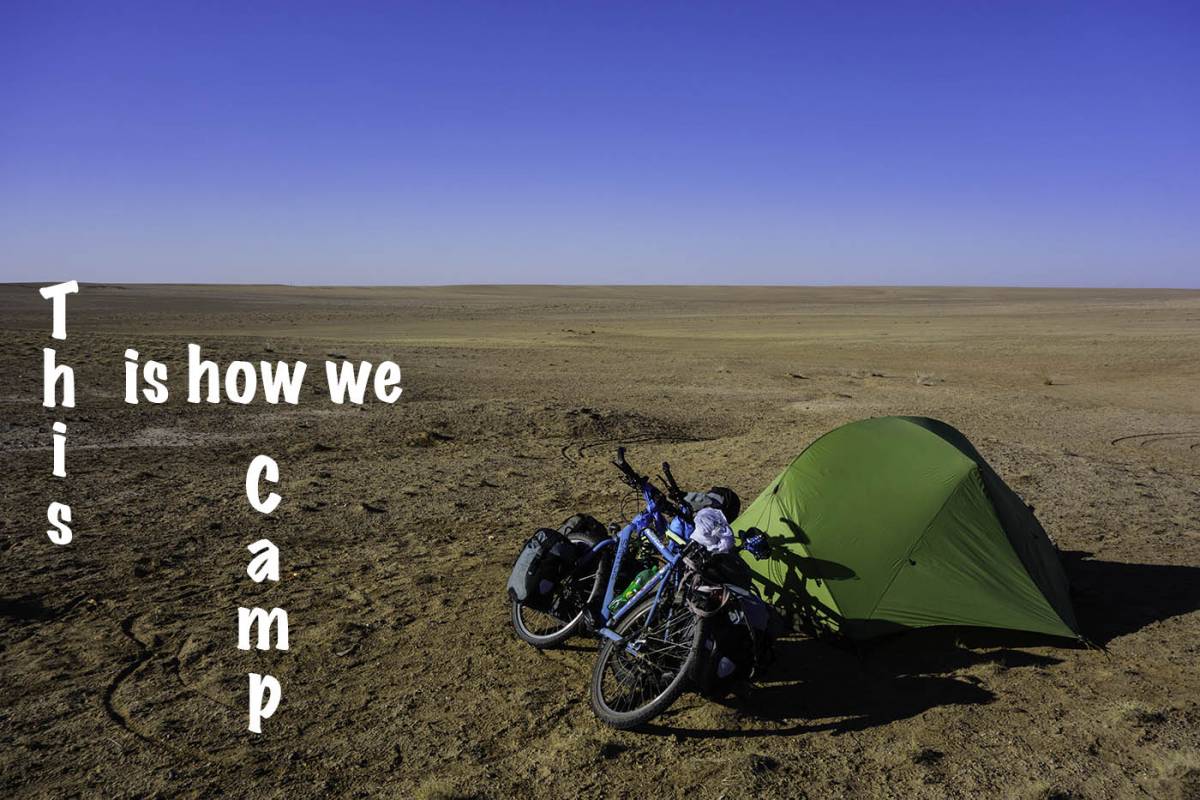




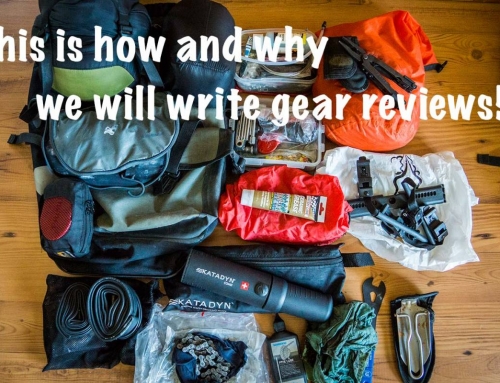
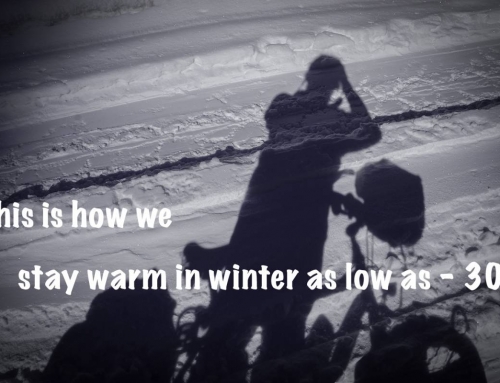
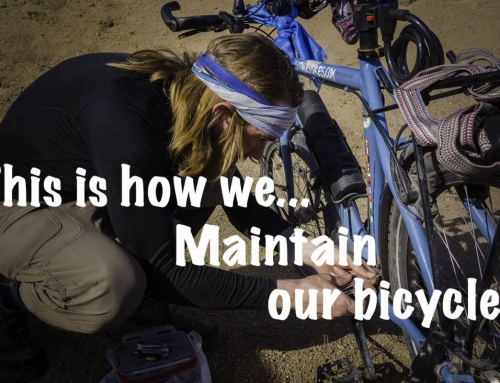
Yep, you have to be completely aware of your surroundings prior to setting up camp…what is know as a quick ‘recce’ of the area and to work out the risks if you do decide to stay there for the night. I think this is one of the most important points to follow, especially if you are camping alone.
so,ist der Martin wieder da?
looking forward to hearing on how you keep clean! hehe